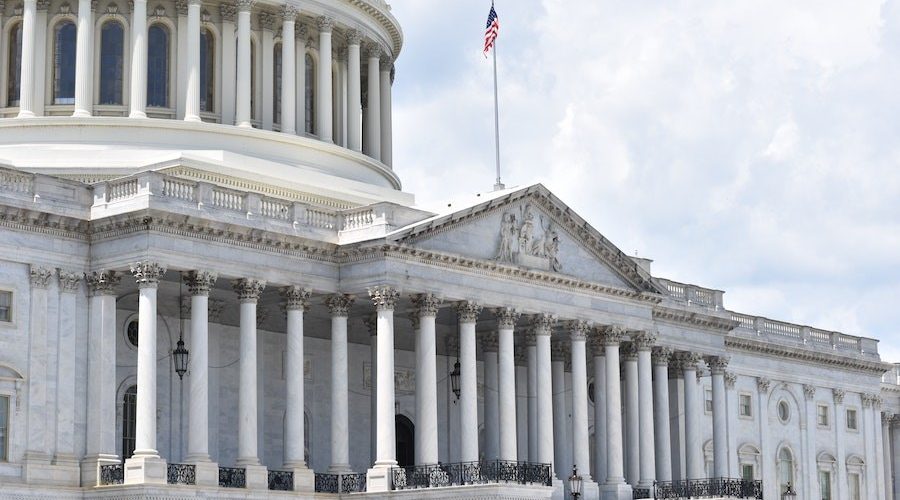A large contingent from the Arizona Chamber of Commerce & Industry was in the nation’s capital this week for the organization’s annual fly-in, an opportunity for a diverse swath of the state’s employers and industries to provide federal policymakers with a perspective on the Arizona business environment and for Arizona business leaders to learn more about the issues roiling Capitol Hill.
This year’s meetings included briefings from the National Association of Manufacturers (NAM), where attendees got an in-depth assessment of the state of the U.S. economy, as well as a presentation on the implications of proposed air quality regulations by the Environmental Protection Agency. The Chamber has been actively advocating for a balanced approach to environmental regulations that does not put economic growth and job creation at risk.
Participants also met with representatives from the Department of Commerce to delve into the implementation of the CHIPS and Science Act, legislation of significant importance to the nation, particularly in the wake of global semiconductor shortages and their impact on industries ranging from automotive to electronics and national defense. Arizona, a pivotal player in the semiconductor supply chain and home to multi-billion-dollar investments by Intel and TSMC, has much to gain from the bill’s smooth implementation.
“The Chamber has a close working relationship with NAM and collaborates regularly on policies to strengthen the manufacturing sector,” Chamber President and CEO Danny Seiden said. “Our discussions with NAM this week were insightful and drove home why our relationship is so valuable and why the Arizona Manufacturers Council is proud to serve as NAM’s state affiliate.”
The Chamber’s Washington visit coincided with an announcement by the Department of Defense that Arizona has been selected as one of eight regional hubs under the Department of Defense Microelectronics Commons program thanks in part to a Southwest Advanced Prototyping (SWAP) Hub proposal led by Arizona State University.
The SWAP Hub has been awarded nearly $40 million to advance microelectronics research and development in artificial intelligence hardware, 5G/6G, and Commercial Leap Ahead Technologies.
“This was extremely welcome news for our group while in Washington, and another reminder of why semiconductor policy was top of mind in our conversations,” Seiden said. “It’s a great example of collaboration between higher education, state government, and our federal delegation leading to a big win for Arizona.”
The Chamber also met with key committees on Capitol Hill, including the House Energy and Commerce Committee, the Senate Finance Committee, the House Budget Committee, and the Senate Health, Education, Labor, and Pensions Committee. These meetings featured conversations on issues such as taxation, healthcare, and budgetary priorities that significantly affect Arizona businesses and workers.
The Chamber also met with members of the Arizona congressional delegation to discuss pressing state issues. The Chamber is the business community’s closest liaison to the delegation.
Topics of discussion with the delegation included environmental overregulation and the potential consequences that could hinder economic development in the state. The group once again stressed the importance of balancing environmental protection with economic growth, ensuring that stringent regulations do not inadvertently stifle business innovation and job creation in Arizona.
Additionally, there were substantial discussions regarding the potential disruptions in the state that could arise from a government shutdown, as Washington stares down a September 30 deadline to adopt a spending plan for the beginning of fiscal year 2024. The Chamber representatives urged delegation members to reach an agreement to prevent unnecessary interruptions of public services and business operations.
“The state’s business community wants Congress and the administration to reach a deal to prevent a shutdown,” Seiden said. “Business doesn’t put much stock in the blame game between the White House and Capitol Hill when the agencies employers interact with are closed. As we saw with the debt ceiling crisis earlier this year, these sorts of standoffs can have real consequences and undermine the country’s competitive standing.”
















Add comment